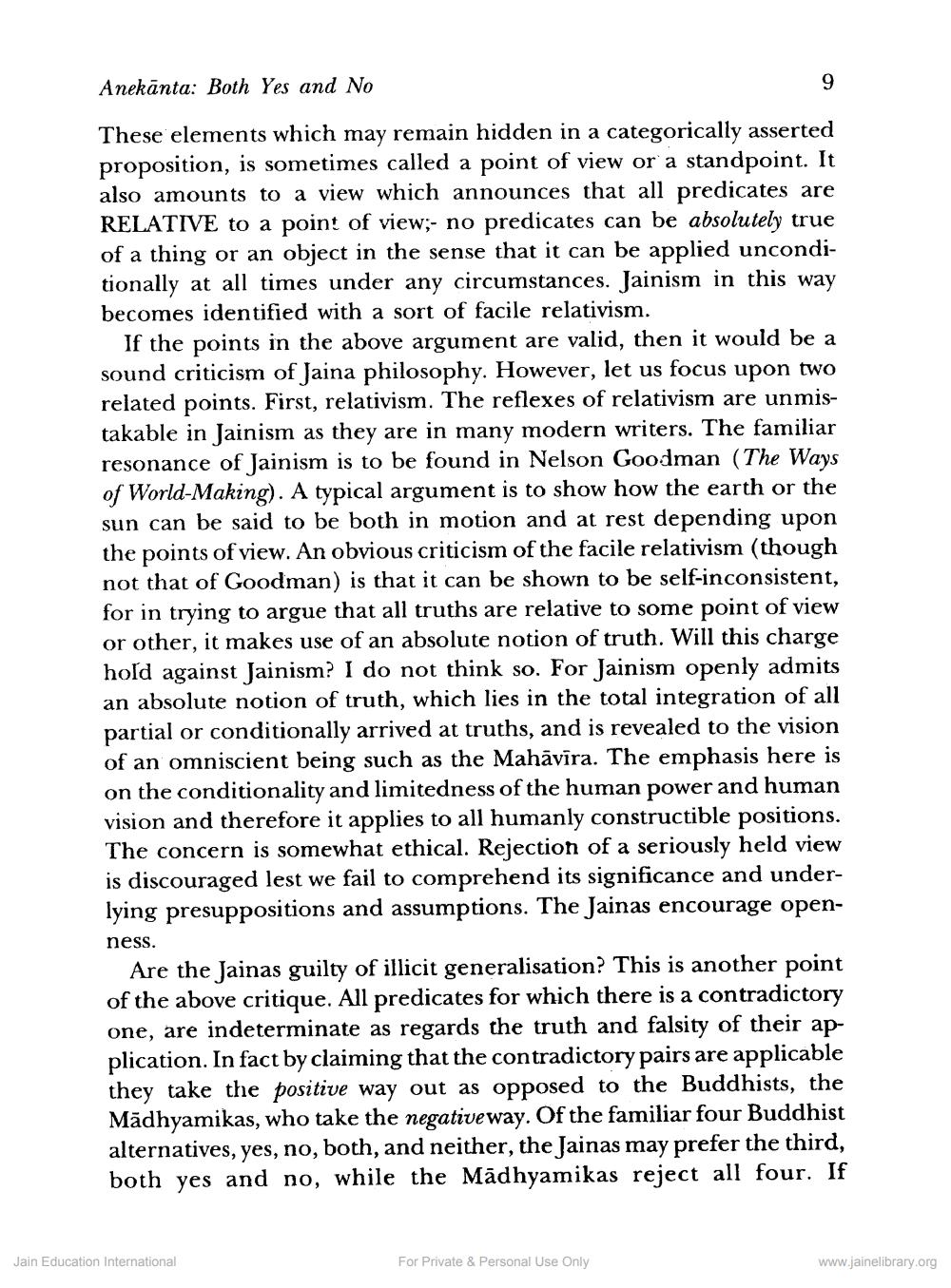________________
Anekānta: Both Yes and No
These elements which may remain hidden in a categorically asserted proposition, is sometimes called a point of view or a standpoint. It also amounts to a view which announces that all predicates are RELATIVE to a point of view;- no predicates can be absolutely true of a thing or an object in the sense that it can be applied unconditionally at all times under any circumstances. Jainism in this way becomes identified with a sort of facile relativism.
the points in the above argument are valid, then it would be a sound criticism of Jaina philosophy. However, let us focus upon two related points. First, relativism. The reflexes of relativism are unmistakable in Jainism as they are in many modern writers. The familiar resonance of Jainism is to be found in Nelson Goodman (The Ways of World-Making). A typical argument is to show how the earth or the sun can be said to be both in motion and at rest depending upon the points of view. An obvious criticism of the facile relativism (though not that of Goodman) is that it can be shown to be self-inconsistent, for in trying to argue that all truths are relative to some point of view or other, it makes use of an absolute notion of truth. Will this charge hold against Jainism? I do not think so. For Jainism openly admits an absolute notion of truth, which lies in the total integration of all partial or conditionally arrived at truths, and is revealed to the vision of an omniscient being such as the Mahavira. The emphasis here is on the conditionality and limitedness of the human power and human vision and therefore it applies to all humanly constructible positions. The concern is somewhat ethical. Rejection of a seriously held view is discouraged lest we fail to comprehend its significance and underlying presuppositions and assumptions. The Jainas encourage openness.
Are the Jainas guilty of illicit generalisation? This is another point of the above critique. All predicates for which there is a contradictory one, are indeterminate as regards the truth and falsity of their application. In fact by claiming that the contradictory pairs are applicable they take the positive way out as opposed to the Buddhists, the Mādhyamikas, who take the negative way. Of the familiar four Buddhist alternatives, yes, no, both, and neither, the Jainas may prefer the third, both yes and no, while the Mādhyamikas reject all four. If
Jain Education International
For Private & Personal Use Only
www.jainelibrary.org




